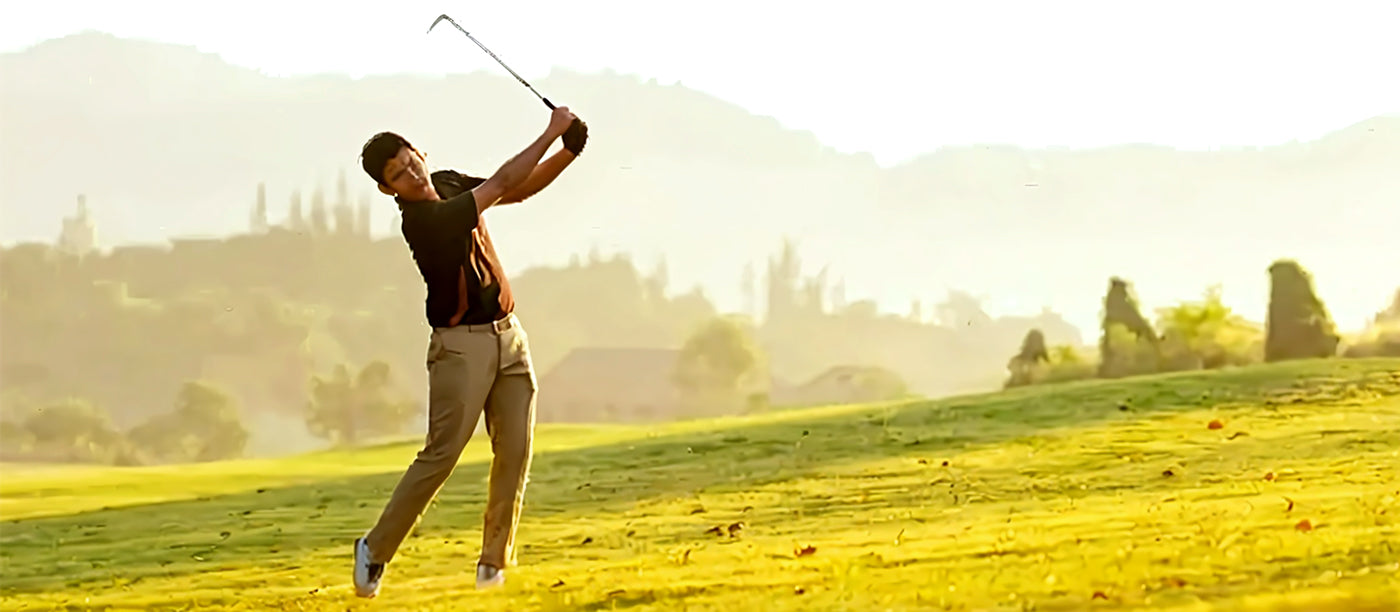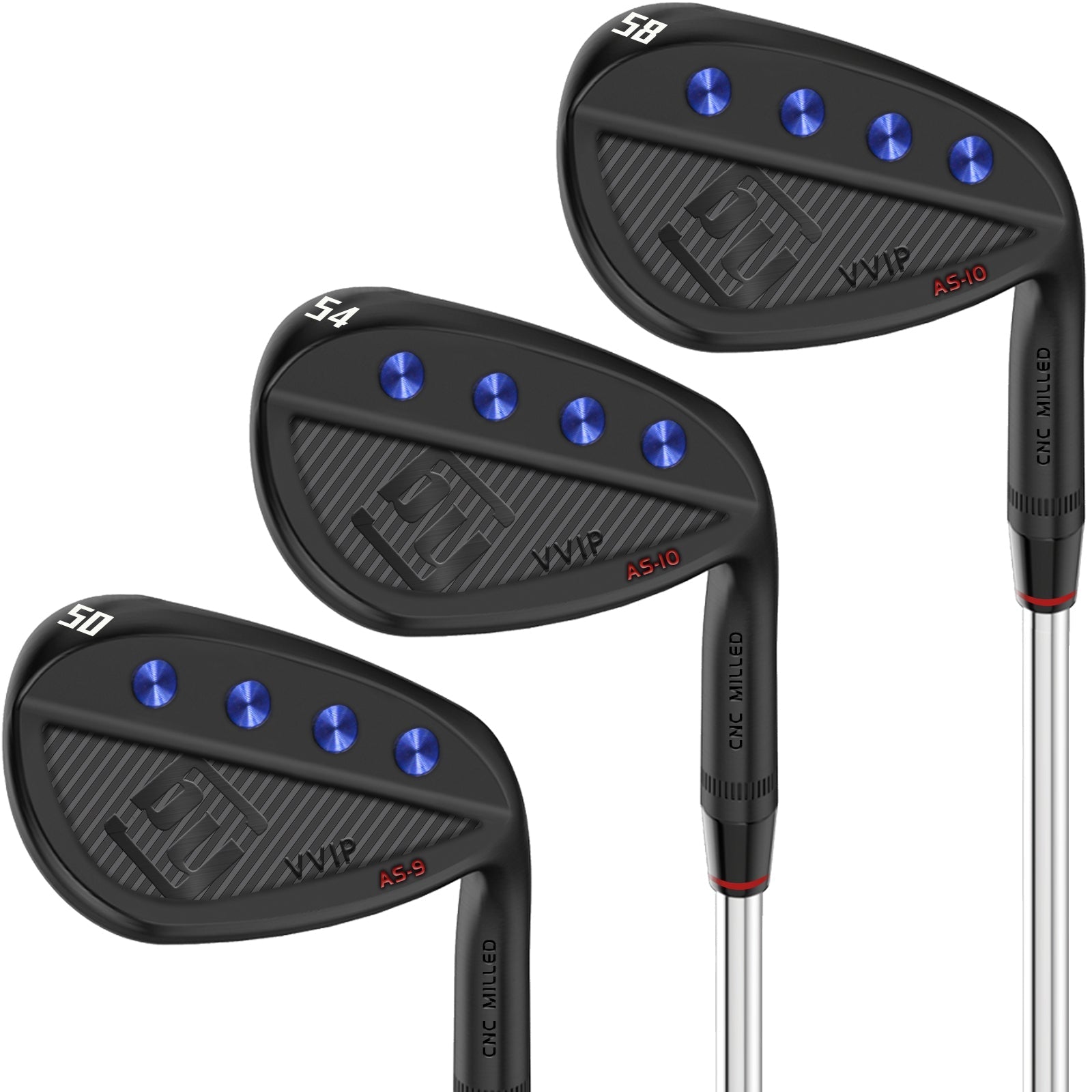When you're just starting out in golf, the sheer number of equipment options available can be overwhelming. From clubs to balls to shoes, there's a lot to consider, and each piece of gear plays a role in improving your game. But don’t worry! In this guide, we’ll break down the essential factors you need to consider when choosing golf equipment, especially for beginners. Whether you're just hitting the driving range or heading out for your first round on the course, understanding the basics will help you make informed decisions and set you on the path to success.
1. Choosing the Right Golf Clubs
The golf clubs you use are arguably the most important piece of equipment. For beginners, it's essential to start with a set that suits your needs and skill level. Here’s what to consider:
-
Club Set Composition: A standard set of golf clubs typically includes a driver, fairway woods, irons (usually 5, 6, 7, 8, and 9), wedges (pitching wedge and sand wedge), and a putter. Beginners should opt for a complete set designed for beginners, as it takes the guesswork out of which clubs you need.
-
Shaft Flex: The flex of the club’s shaft impacts the distance and accuracy of your shots. Beginners generally should look for clubs with a regular or flexible shaft. If the shaft is too stiff, you may not get enough distance; if it's too flexible, it can affect your control.
-
Club Length: Club length depends on your height and arm length. A professional fitting can help you choose the right size, but most beginner sets come in standard sizes that work for most players.
2. Picking the Right Golf Balls
Golf balls might seem like a minor detail, but the right ball can have a significant impact on your game, especially as a beginner. Here are the basics:
-
Soft vs. Hard Golf Balls: Soft balls tend to provide more control and spin, while harder balls travel further and tend to be more durable. Beginners may want to choose a soft ball for better control, especially around the greens.
-
Ball Compression: Compression refers to how much the ball compresses when it’s struck. Beginners usually benefit from a ball with a lower compression (around 70-80), which is easier to hit and offers more distance.
3. Golf Shoes: Comfort and Stability Matter
Having a good pair of golf shoes is essential for comfort and performance. Here's what to look for:
-
Spiked vs. Spikeless: Traditional golf shoes have spikes for traction, while spikeless shoes provide grip through a rubber outsole. Spiked shoes are ideal for wet or hilly courses, while spikeless shoes are more comfortable for casual rounds.
-
Comfort and Fit: Ensure your shoes are comfortable for walking long distances. Look for shoes with good arch support and a snug fit to avoid blisters.
-
Waterproof Options: If you plan to play in varying weather conditions, consider waterproof shoes to keep your feet dry.
4. Choosing Golf Apparel
While not as critical as clubs or balls, having the right golf apparel can enhance your comfort and performance on the course:
-
Breathable Fabrics: Golf is a sport played outdoors, often in warm or humid conditions, so wearing breathable, moisture-wicking fabrics will help you stay cool and comfortable.
-
Comfortable Fit: Choose clothing that allows for freedom of movement. Opt for polo shirts, golf pants or shorts, and a good hat to protect you from the sun.
5. Getting the Right Golf Bag
A golf bag keeps your clubs organized and protected while you’re on the course. Here’s what to consider:
-
Stand Bag vs. Cart Bag: A stand bag is lightweight and has retractable legs, making it easy to carry. A cart bag is larger, has more compartments, and is ideal for use with a golf cart. As a beginner, a stand bag is typically the best option.
-
Storage and Pockets: Look for a bag with plenty of pockets to store tees, balls, gloves, and other accessories.
6. Getting Fitted for Your Equipment
Getting fitted for your golf clubs can make a significant difference in your game. Many golf shops offer fitting services where they can help you choose the best clubs based on your swing speed, body type, and preferences. While it’s an investment, it can be especially helpful for beginners who want to avoid purchasing equipment that isn’t suited to their needs.
Conclusion:
Choosing the right golf equipment as a beginner can be overwhelming, but with a little knowledge and research, you can make informed decisions that will help you enjoy the game and improve your skills. Start with the basics – a good set of clubs, the right ball, comfortable shoes, and the necessary apparel – and don’t be afraid to ask for help when needed. As you progress in your game, you can gradually upgrade your gear, but the most important thing is to have fun and enjoy the learning process!
Call to Action: Are you a beginner golfer? Share your experiences or any questions you have about choosing golf equipment in the comments below! We'd love to hear your thoughts.
For quality golf equipment and expert advice, visit our website: www.yamatosport.com – your one-stop shop for everything you need to elevate your game!




Leave a comment
All comments are moderated before being published.
This site is protected by hCaptcha and the hCaptcha Privacy Policy and Terms of Service apply.